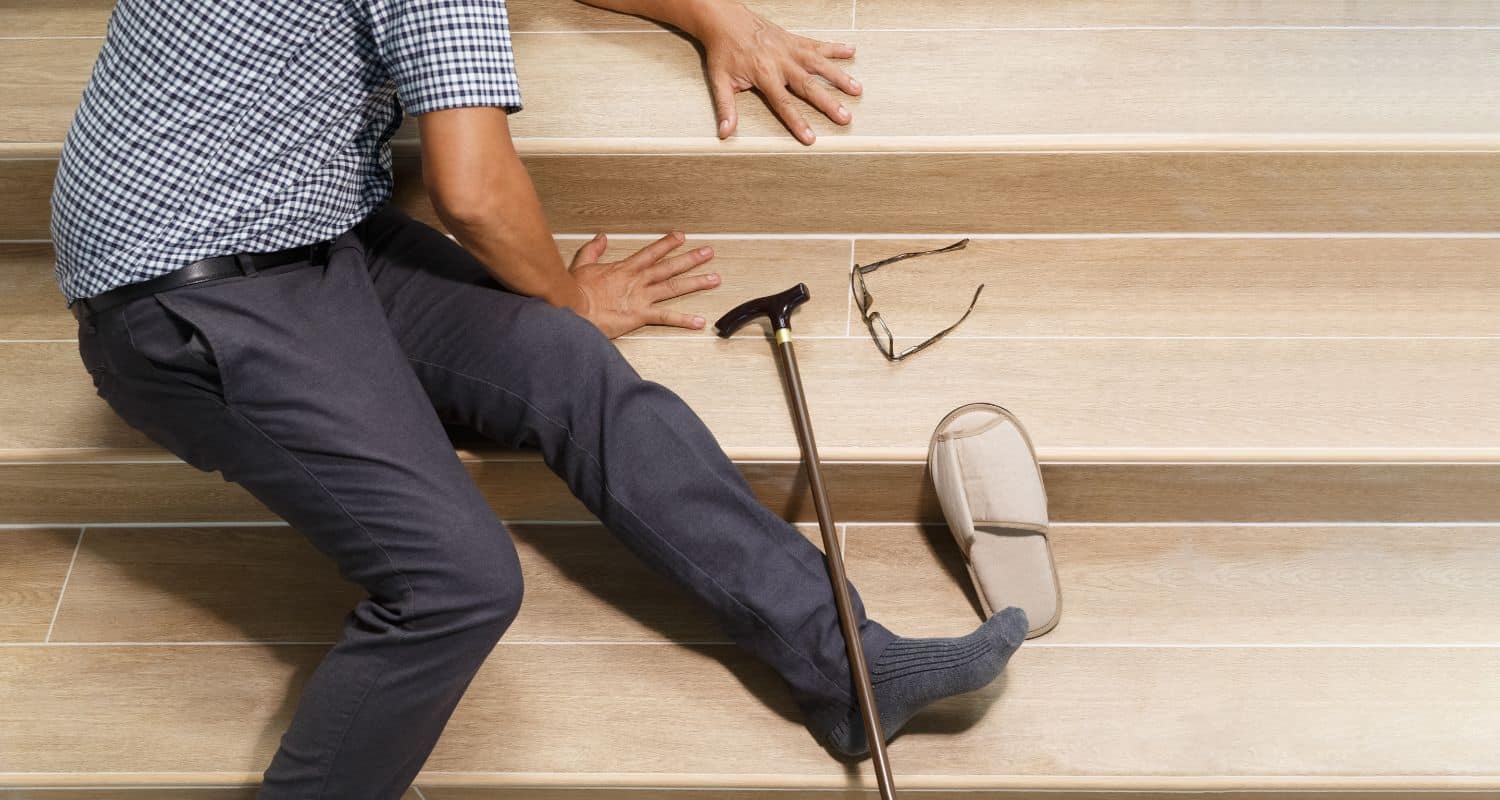
As we age, it seems we are presented with increasing health concerns. For instance, a simple trip could happen to anyone, but as our bones become more fragile a fall could be the start of major health complications. It’s estimated that every 11 seconds, a older adult will visit an emergency room seeking treatment for a fall in the US.
The Center for Disease Control and Prevention (CDC) states that One out of four older adults will fall annually in the United States, making falls the leading cause of injury and injury death. In fact, about 36 million falls are reported among older adults each year have been found to amount approximately 32,000 deaths. It’s hard to know how you will fair after a fall. At one moment you may be fine and all it takes is just one moment out of place to change the course of your health. One out of every five falls causes an injury, such as broken bones or a head injury that can lead to lasting ailments and mobility issues. It’s important to take as many steps as we can to protect ourselves against falls when we can. Part of this treatment has been found an unlikely source: addressing hearing loss!
The Inner Ear of Balance
It surprises many to discover that balance and hearing are connected. However, for those who understand the anatomy of the inner ear, it may make more sense. Among the many tiny and intricate mechanisms of the inner ear, lies the vestibular system. The vestibular system consists of two structures of the bony labyrinth of the inner ear, the vestibule, and the semicircular canals. These structures are filled with a liquid which moves throughout the maze-like system to provide our brain with information about motion, head position, and spatial orientation. Beyond this, the amazing and versatile vestibular system helps control motor functions which support our balance, by stabilizing our head and body during movement, and aiding in posture. “The vestibular system helps us maintain our balance, orient ourselves in space, and navigate our environment”, explains Jennifer Stone, PhD, a research professor of otolaryngology–head and neck surgery at the University of Washington, while conducting an October 2021 Hearing Health Foundation (HHF) webinar.
How the Vestibular System and Hearing Are Connected
While both the vestibular system and hearing system systems share share a nerve pathway to the brain, known as the vestibulocochlear nerve, they also are devoted to separate functions. Dr. Cameron Budenz, MD, medical director of the Audiology and Cochlear Implant Center at Phelps Hospital, Northwell Health in Sleepy Hollow, New York notes a division in function “One part is dedicated to hearing, another part to balance.”
However, disfunction in one system could note issues in the other. For instance, if you are struggling with hearing loss, tinnitus or dizziness, it could signal a problem throughout the inner ear.
“People who have hearing loss are much more likely to have balance disorders than those who do not have hearing loss,” Stone explains, due to the shared connection. While hearing loss may not be the cause of falls and dizziness
Hearing loss itself is not a cause for a vestibular disorder however, damage within the inner ear which may cause a hearing impairment may also contribute to issues with the vestibular system – meaning that often hearing loss is a sign of an underlying condition impairing balance.
Accidental Injuries and Falls
It’s important to do what we can to avoid falls at any time. Aside from the shared use of the auditory cortex which balance and hearing share, people are at a greater risk of falls for another reason. When our hearing is impaired, we are less aware of our environment. We are more likely to miss warning signs, alarms and sounds coming from behind us. Subtle sounds such as the jiggling of a beloved pet’s collar can be missed causing us to trip and fall. In working environments, we can miss alarms and warnings, not only putting us at risk, but all of those around us. Similarly, behind the wheel, our reaction time may be compromised when we struggle to hear sounds in time.
Supporting Your Balance
If you’ve been struggling with hearing or balance, don’t ignore the issue. Be proactive by scheduling a hearing exam today. We can explore your hearing and balance issues and help find the best solution to keep you spry and on your feet for years to come.
